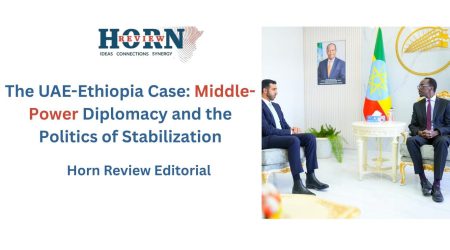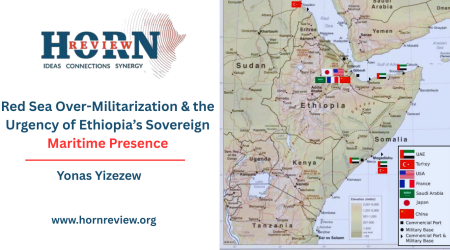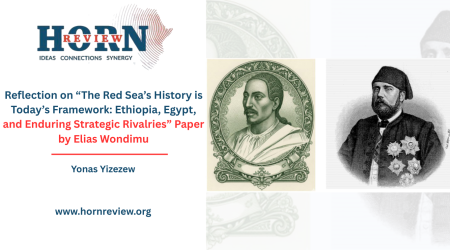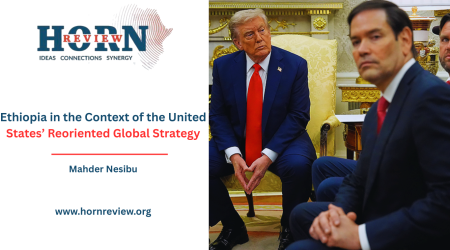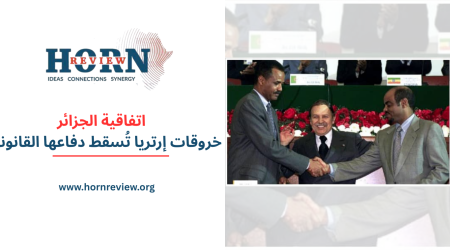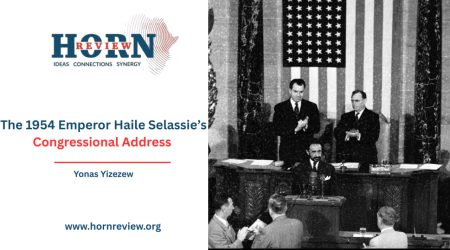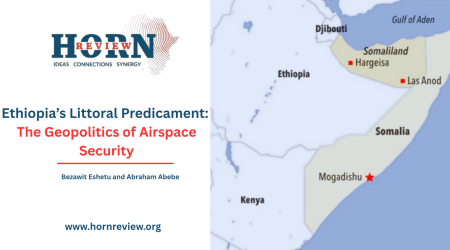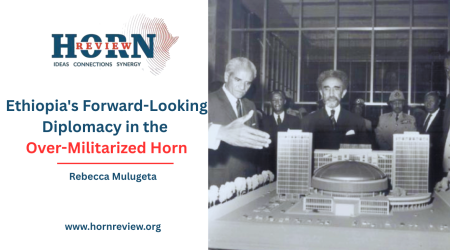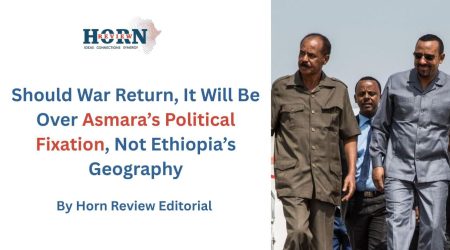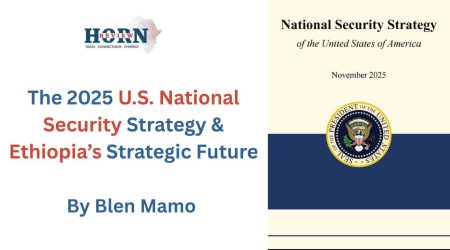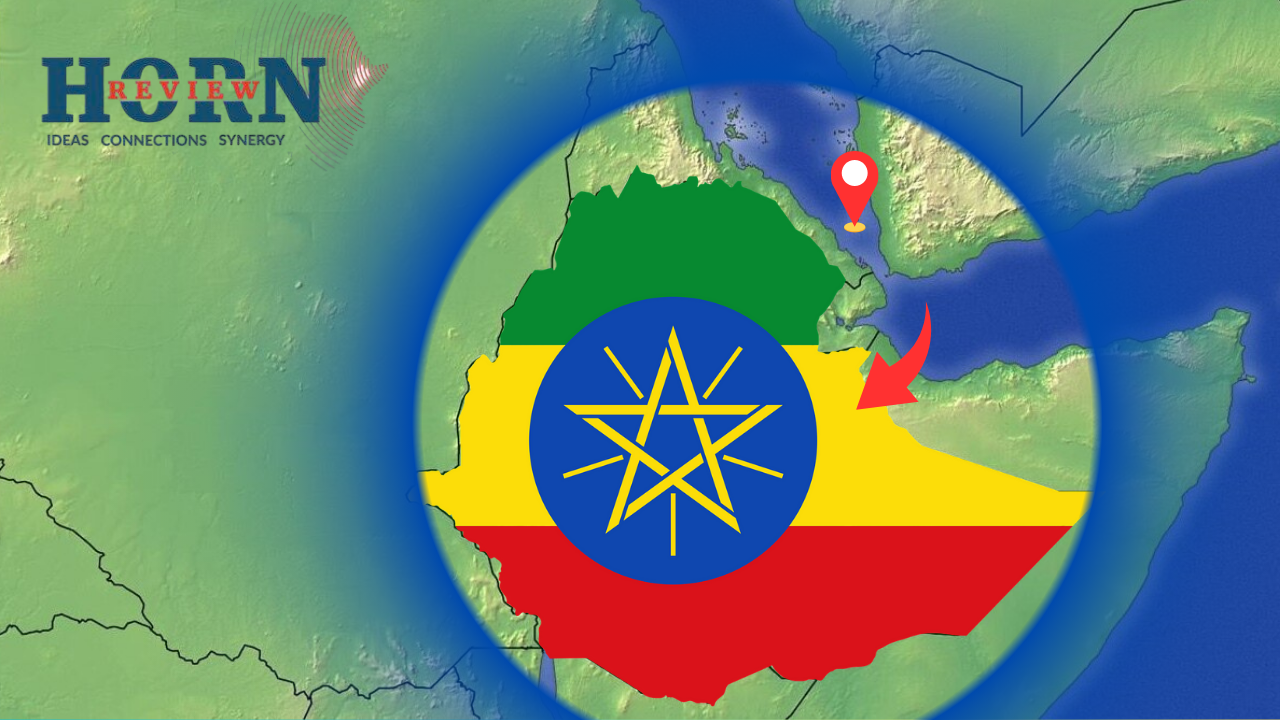
5
Jul
Mapping Spoilers in Ethiopia’s Political and Security Landscape: Motives and Management
By Abdi Zenebe (PHD), Deputy Director, Institute of Foreign Affairs
Democratic transitions are inherently complex and challenging endeavors, marked by the need to accommodate diverse and often competing interests. Among the most significant obstacles are spoilers – actors who actively undermine peace or democratic processes – widely regarded as “the greatest source of risk” to countries attempting to build consolidated democracies and lasting peace (Stedman, 1997). Since the mid-1990s, the concept of spoilers has gained traction among international organizations and scholars.
However, much of the discourse has focused on strengthening external actors’ capacities to manage spoilers, especially in the Global South. The literature addressing the role of local state capacity in managing spoilers during political transitions or dialogues, such as the work of Nilsson and Kovacs (2021), remains relatively limited and mainly emphasizes the diverse nature of spoilers and the challenges of their management.
The behavior and influence of spoilers have evolved significantly alongside advancements in communication technologies. Social media, the internet, and emerging tools like generative AI enable spoilers to operate with increased anonymity, rapidly disseminate disinformation, and influence conflicts remotely – even from abroad. This is particularly alarming for spoilers who hold foreign passports, as they exploit international mobility and jurisdictional protections to evade local accountability while coordinating destabilizing activities through global networks. Furthermore, spoilers today are not confined to identifiable political entities; covert actors posing as journalists, researchers, or activists also seek to undermine democratic processes and national dialogues.
To better understand this multifaceted phenomenon, this analysis explores the Ethiopian government’s approach since 2018 to managing spoilers both within and beyond its borders. It begins by defining and mapping spoilers in Ethiopia using Stedman’s (1997) typology, then examines their underlying motives before proposing both traditional and innovative strategies for their management, with a particular focus on internally driven approaches. The analysis further contextualizes spoilers within broader ethnic dynamics, power asymmetries, regional influences, and the evolving digital ecosystem, while reflecting on the ethical dilemmas and fluidity inherent in spoiler behavior.
Defining and Mapping Spoilers in Ethiopia
Stedman’s (1997) typology – categorizing spoilers as limited, greedy, or total – provides a foundational framework for understanding spoilers within Ethiopia’s complex political and security environment. Limited spoilers pursue specific, negotiable goals, often manageable through recognition or power-sharing arrangements. Greedy spoilers adjust their demands opportunistically according to political momentum, while total spoilers exhibit uncompromising, often pathological tendencies, seeking to dominate or destroy opposing groups (Stedman, 1997, pp. 10–11).
However, it is important to recognize that spoiler identities and behaviors are neither static nor easily pigeonholed. Actors may shift between categories as contexts change, illustrating the fluidity of spoiler roles. Moreover, spoilers operate within a fragmented governance landscape marked by contested sovereignty and competing centers of power, a hallmark of Ethiopia’s hybrid political order. This fragmentation complicates traditional conflict management approaches and requires adaptive strategies sensitive to local dynamics.
In the Ethiopian context, spoilers are individuals, groups, or factions that actively disrupt peace and democratic transitions through violence, incitement, insurrection, and misinformation disseminated by both traditional and digital media. These actors, whether locally based or operating from abroad, undermine the government’s open-door policy and repeated calls for inclusive dialogue, such as those championed by the National Dialogue Commission (NDC). Their motivations intertwine with ethnonationalist grievances, historical narratives of marginalization, and struggles over resource control, further complicating peace efforts.
Key Spoilers in Ethiopia
Applying Stedman’s framework reveals a diverse array of spoilers active in Ethiopia’s political and security arena as of mid-2025. Among armed groups, certain designated terrorist organizations display total spoiler characteristics by rejecting peace offers and national dialogue initiatives while seeking ethnic or regional dominance through uncompromising means. These groups’ actions are driven not only by political aims but also by deeper identity-based fears and historical grievances, weaponizing ethnicity to mobilize followers and justify exclusionary agendas.
Others, which formerly exhibited total spoiler behavior, have shifted somewhat following military setbacks and peace agreements but remain greedy spoilers, manipulating political openings to retain regional power and autonomy. Fragmented militias in regions like Amhara, lacking centralized leadership yet sharing ethnonationalist goals, also fit the total spoiler profile. Their decentralized nature and refusal to engage in dialogue reflect a broader resistance to state authority and pluralism.
In the political realm, some diaspora-based actors – often influential on digital platforms – epitomize greedy spoiler behavior. These individuals exploit crises to bolster their own political capital and influence from abroad, publicly criticizing dialogue processes despite government invitations to participate. Their relative safety outside Ethiopia’s jurisdiction allows them to sustain oppositional campaigns without facing immediate consequences, while their activities intersect with transnational networks and foreign political landscapes.
Domestically, other political figures exhibit a spectrum of spoiler behavior. Some display limited spoiler tendencies, engaging in negotiation and seeking political relevance through inclusion in national processes. Others, more opportunistic, escalate tensions to regain lost influence, adjusting their tactics dynamically according to the evolving political context.
Notably, spoiler influence is deeply affected by power asymmetries. The state’s institutional weaknesses, legitimacy crises, and governance gaps create openings that spoilers exploit. Thus, spoiler behavior is both a cause and a symptom of broader structural vulnerabilities.
The Evolving Nature of Spoilers: Communication Tools and Transnational Actors
Modern communication technologies have transformed spoiler behavior dramatically. Platforms such as X, Facebook, and Telegram enable rapid spread of propaganda and incitement, with social media notably intensifying ethnic tensions during the Tigray conflict (2020–2022). Spoilers use these tools strategically to mobilize support and polarize communities, while platform algorithms often amplify inflammatory content, creating echo chambers that deepen divisions. Encrypted messaging applications provide spoilers – particularly those in the diaspora – with secure channels to coordinate activities and evade detection.
The digital ecosystem is not neutral; algorithmic design can unwittingly magnify polarization and facilitate disinformation, highlighting the importance of algorithmic accountability and digital governance reforms. Collaborative efforts between governments, civil society, and technology companies to develop fact-checking mechanisms and content moderation strategies are increasingly critical to counter spoiler influence.
Spoilers holding foreign passports leverage international mobility and legal protections to operate from abroad, complicating the Ethiopian government’s capacity to address their activities. The diaspora in the US, Europe, and Canada has been implicated in spreading inflammatory content that exacerbates ethnic and political fault lines, often supporting competing narratives aligned with different regional factions. Their physical distance and protected status enable them to influence the conflict remotely with impunity.
Further complicating the picture are covert spoilers who masquerade as journalists, researchers, or civil society actors. These individuals use their platforms to undermine national dialogue efforts, spread disinformation, and sow mistrust, challenging authorities’ ability to distinguish between legitimate dissent and destabilizing activity.
Managing Spoilers in Ethiopia: Strategies and Options
Since 2018, Ethiopia’s government has employed a range of strategies to manage spoilers, including accommodation, dialogue, and law enforcement measures. Yet, the dynamic and evolving nature of spoilers demands a nuanced and flexible approach. Existing scholarship underscores that spoilers operate both within formal political systems and beyond, and failure to effectively address them risks undermining peace processes and democratic consolidation (Nilsson & Kovacs, 2021).
Effective management requires blending traditional peacebuilding approaches with innovative measures, including enhanced digital governance and targeted diplomatic engagement – especially with diaspora host countries. The selective inclusion of spoilers whose demands remain negotiable, coupled with firm responses against maximalist spoilers pursuing uncompromising and destructive agendas, is critical. Moreover, sustainable solutions must address the underlying drivers of conflict – ethnic grievances, economic marginalization, and historical injustices – rather than merely containing spoiler activities.
It is also essential to recognize the ethical dilemmas inherent in managing spoilers. Engaging with violent or extremist spoilers risks legitimizing harmful agendas, while overly repressive tactics can alienate moderates and exacerbate conflict. Striking a balance between security imperatives and democratic freedoms remains a persistent challenge.
Finally, successful management hinges on multi-level approaches that incorporate grassroots peace committees, regional actors, and international partners. Integrative frameworks that combine security, political, social, and economic tools, and prioritize local ownership and inclusive governance, offer the most promising pathways toward mitigating spoiler impact and advancing peace in Ethiopia.
References
- Stedman, S. J. (1997). Spoiler Problems in Peace Processes. International Security, 22(2), 5–53. https://cisac.fsi.stanford.edu/publications/spoiler_problems_in_peace_processes
- Nilsson, D., & Kovacs, M. S. (2021). Dealing with Divergence: Intra-party Dynamics and Spoiler Behavior in Peace Processes. Oxford Academic.
- Odendaal, A. (2013). A Crucial Link: Local Peace Committees and National Peacebuilding. United States Institute of Peace. https://www.usip.org/publications/2013/09/crucial-link
- Kastrati, B. (2024). Methods Used to Deal with Peace Process Spoilers. ResearchGate. https://www.researchgate.net/publication/306523971_Methods_Used_to_Deal_with_Peace_Process_Spoilers
- Issifu, A. K. (2016). Efficacy of the Indigenous Approach to Peacebuilding in Africa. Academia.edu. https://www.academia.edu/30509376/Efficacy_of_the_Indigenous_Approach_to_Peacebuilding_in_Africa
- The Algorithmic Management of Polarization and Violence on Social Media. Knight First Amendment Institute. https://knightcolumbia.org/content/the-algorithmic-management-of-polarization-and-violence-on-social-media
- Hate Speech and Social Media: Preventing Atrocities. Global Centre for the Responsibility to Protect. https://www.globalr2p.org/publications/hate-speech-and-social-media-preventing-atrocities-and-protecting-human-rights-online/
- Facebook Knew It

